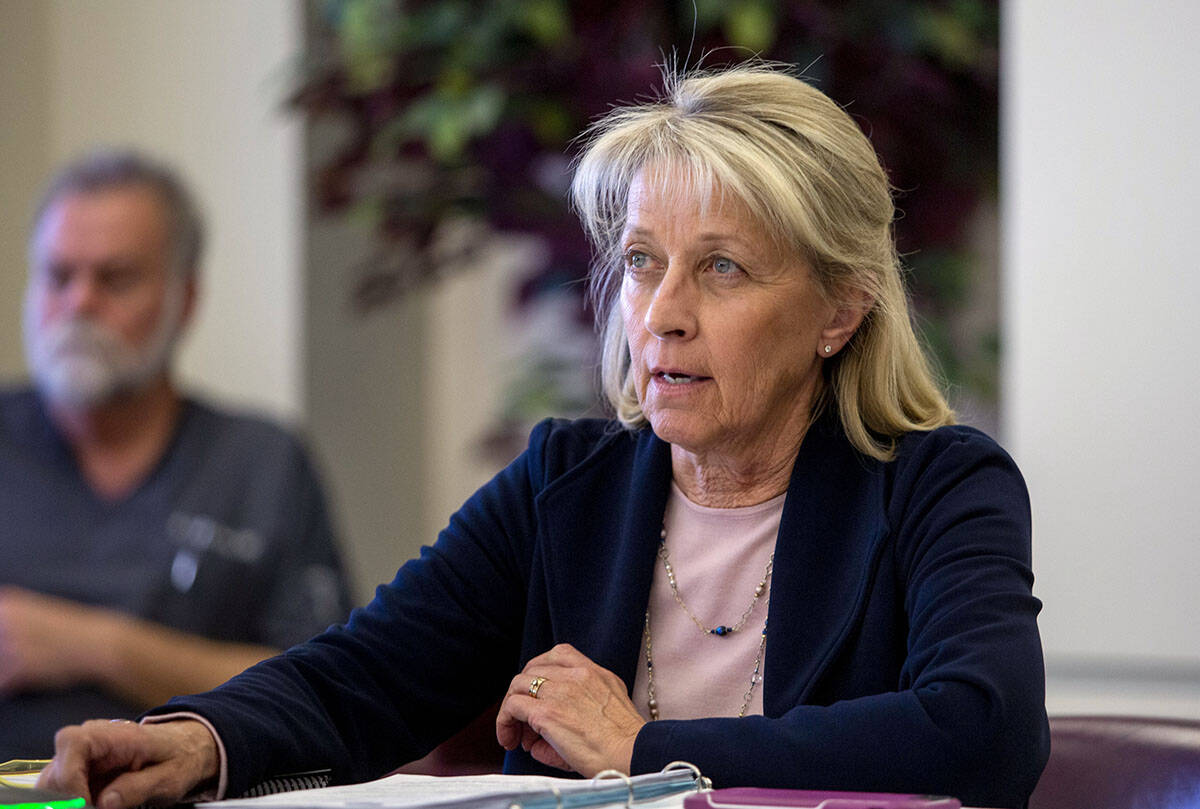Judge says teachers union can withdraw tax petitions
A Carson City judge ruled Wednesday that the secretary of state must withdraw a pair of tax-raising ballot measures that the Clark County teachers union had qualified but later tried to pull back from the 2022 ballot after successfully pressuring lawmakers into increasing education funding last year.
The two initiatives, sponsored in 2020 by the Clark County Education Association’s political arm, aimed to increase funding for education. The union’s lawsuit against Secretary of State Barbara Cegavske, filed in Carson City District Court, argued that the secretary of state “has no discretion under the law” to block the union’s decision to withdraw the related petitions.
One ballot question asked voter approval to add a higher tax tier for the state’s largest, most profitable casinos, while the other sought to increase part of the state’s sales tax by 1.5 percent to fund education. The two measures qualified for the ballot in 2020. The two measures would have generated roughly $2.8 billion over two years.
But state lawmakers in 2021 passed a new tax on mining revenue to increase funding for education, which satisfied the union’s original intent of the petitions. As part of that deal, association Executive Director John Vellardita agreed to withdraw both initiatives and lawmakers changed state law to allow for the withdrawal process.
Nevada Secretary of State Barbara Cegavske said that state constitution prevented her from withdrawing the measures, and the union filed the lawsuit against Cegavske in December.
In his ruling, Carson City District Court Judge James Wilson disagreed with Cegavske’s reasoning, saying that the changes to the law “can and must be read in harmony” with the constitution.
Nothing in the constitution, he wrote, “appears to contravene the Legislature’s ability to enact a provision permitting proponents such as Petitioners from deciding to withdraw their initiative measures.”
Wilson wrote that with the changes enacted by the Legislature, “proponents like Petitioners know throughout the process — from formulation through to election season — that they have a clear deadline and process for withdrawal of a petition.”
“The ability to withdraw a petition can save valuable time and resources for Nevadans, including proponents, opponents, the courts, the Secretary of State, and the Legislature,” Wilson added.
The secretary of state’s office said in an email that officials had just received the ruling and did not have a comment “at this time.”
After the mining tax deal was struck during the 2021 Legislature, Vellardita pointed to the petitions as the key reason for the deal, saying at the time that it was “threat of those initiative petitions that produced the value that we’re seeing today.”
Vellardita said Wednesday that he expects others will follow the union’s lead in using initiative petitions to pressure lawmakers into action.
“Do we see it being used in the future? Absolutely,” Vellardita said.
Virginia Valentine, president of the the Nevada Resort Association, which opposed the gaming tax increase proposal and in 2020 sued to block the union’s ballot initiative, said in a statement that the trade group was happy with the decision “as it puts this economically damaging issue behind us by rejecting tax increases on both ordinary Nevadans and the industry at a critical time in our state’s economic recovery.”
“Residents and businesses alike are already facing rising gasoline prices, inflation and other economic pressures that could threaten the progress we’ve made over the past two years,” she added.
CCEA ballot measure ruling by Colton Lochhead on Scribd
Contact Colton Lochhead at clochhead@reviewjournal.com Follow @ColtonLochhead on Twitter.























